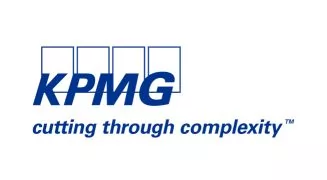Previously published in Lexpert Magazine in June 2011
It's hard to overstate the challenges presented by electronic discovery, as the amount of digital information stored by organizations swells to capacity. Drafting a plan can help you face the imminent deluge
Over the past decade, as the amount of electronic information created and stored by organizations has grown, so have the challenges facing counsel and information technology specialists in responding to e-discovery demands. Counsel is further challenged by new procedural rules in the jurisdictions in which they practice or their organization operates.
Legal teams that understand their readiness for litigation and investigation are able to plan and manage the costs, time and risks associated with e-discovery. By developing a process with which to address electronic discovery, organizations can systematically manage complex discovery demands in a repeatable, defendable and scalable manner. Whether you practice in a law firm or a company, you must ensure that your organization is discovery ready, but the question is how?
Assessment
The first step of any discovery-readiness project requires the assessment of the current response capability. The assessment has multiple aims: understanding your actual discovery readiness; identifying existing or potential issues with applicable rules and best practices; and developing a roadmap for the future. Your assessment should look at a number of metrics, such as the number and nature of the discovery demands by department or business unit; the burden, cost and delays to comply; and the risks involved.
To be effective, the assessments must have representation from legal, IT, records-management, compliance and risk-management teams. This can help ensure a multidisciplinary understanding of the situation. Overall, the objective is to identify the people, processes and technology involved in your organization's discovery responses. Through interviews, surveys and documentary reviews, you should be able to gain insight into the interactions during the discovery phases of identification, preservation, collection, processing, review and production. To properly understand these interactions and underlying processes, look closely at the following dimensions:
1. Governance. Which policies and procedures are in place to provide guidance on conducting and managing discovery? Specifically, are there policies relating to records management and legal holds? If not, these should be developed and implemented in the first instance.
2. Technology. The biggest question that faces the legal team when discovery is required is , "Where is the relevant information?" Answer the question by having a data map in place that lists the systems, type of data they contain, and names of the administrators. Irrespective of whether your organization has a mature enterprise-content management system in place or simply network-shared drives, the data map can save you time and effort.
3. Culture. Understanding the cultural aspects of how the organization and the individual employees use the information that they create and receive can allow you to efficiently respond to the demands of e-discovery. Are there separate silos of information and practice that rarely interact? Does the organization operate in multiple jurisdictions? The assessment should provide you with a view of how ready your organization is to deal with e-discovery requests and enable you to develop a roadmap to remediate any areas of deficiency.
Following Up
With the assessment results in hand, you are now equipped with a framework to help improve the discovery capabilities of your organization. The keys to success should include updating the policies, documenting the process, preparing the data map and, most importantly, ensuring that an effective communication plan is in place. Regular testing and drills can provide significant returns on investment. Finally, remember that e-discovery is a process, not a technology.
The content of this article is intended to provide a general guide to the subject matter. Specialist advice should be sought about your specific circumstances.

